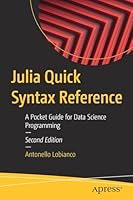
Practical Linux Security Cookbook
- Length: 276 pages
- Edition: 1
- Language: English
- Publisher: Packt Publishing
- Publication Date: 2016-04-29
- ISBN-10: B01C2XX8Z6
- Sales Rank: #1286371 (See Top 100 Books)
Key Features
- This book provides code-intensive discussions with detailed recipes that help you understand better and learn faster.
- More than 50 hands-on recipes to create and administer a secure Linux system locally as well as on a network
- Enhance file system security and local and remote user authentication by using various security tools and different versions of Linux for different tasks
Book Description
With the growing popularity of Linux, more and more administrators have started moving to the system to create networks or servers for any task. This also makes Linux the first choice for any attacker now. Due to the lack of information about security-related attacks, administrators now face issues in dealing with these attackers as quickly as possible. Learning about the different types of Linux security will help create a more secure Linux system.
Whether you are new to Linux administration or experienced, this book will provide you with the skills to make systems more secure.
With lots of step-by-step recipes, the book starts by introducing you to various threats to Linux systems. You then get to walk through customizing the Linux kernel and securing local files. Next you will move on to manage user authentication locally and remotely and also mitigate network attacks. Finally, you will learn to patch bash vulnerability and monitor system logs for security.
With several screenshots in each example, the book will supply a great learning experience and help you create more secure Linux systems.
What you will learn
- Learn about various vulnerabilities and exploits in relation to Linux systems
- Configure and build a secure kernel and test it
- Learn about file permissions and security and how to securely modify files
- Explore various ways to authenticate local users while monitoring their activities.
- Authenticate users remotely and securely copy files on remote systems
- Review various network security methods including firewalls using iptables and TCP Wrapper
- Explore various security tools including Port Sentry, Squid Proxy, Shorewall, and many more
- Understand Bash vulnerability/security and patch management
About the Author
Tajinder Kalsi is an innovative professional with more than 9 years of progressive experience within the information security industry. He has a good amount of knowledge and experience in web application testing, vulnerability assessment, network penetration testing, and risk assessment.
At present, he is working as an independent information security consultant. He started his career with Wipro as a technical associate, and later on he became an ISMS consultant cum technical evangelist. In his free time, he conducts seminars in colleges all across India on various topics, and he has covered more than 125 colleges and spoken to 10,000+ students.
In the past, he has reviewed books such as Web Application Penetration Testing with Kali Linux, Mastering Kali Linux for Advanced Penetration Testing, and Advanced Wireless Penetration Testing for Highly-Secured Environments.
You can find him on Facebook at www.facebook.com/tajinder.kalsi.tj, or contact him on his website at www.tajinderkalsi.com.
Table of Contents
Chapter 1. Linux Security Problems
Chapter 2. Configuring A Secure And Optimized Kernel
Chapter 3. Local Filesystem Security
Chapter 4. Local Authentication In Linux
Chapter 5. Remote Authentication
Chapter 6. Network Security
Chapter 7. Security Tools
Chapter 8. Linux Security Distros
Chapter 9. Patching A Bash Vulnerability
Chapter 10. Security Monitoring And Logging







